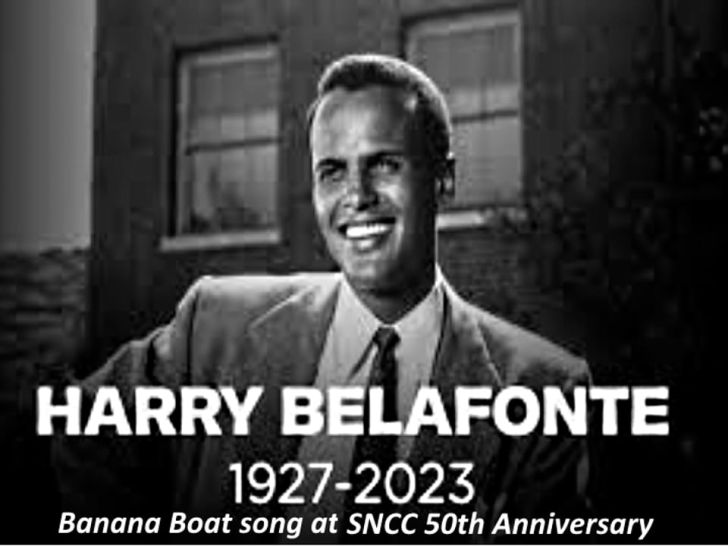When Harry Belafonte died on April 25, the tributes to his musical skills and progressive political commitments were, it seemed, ubiquitous. I decided that there was no way I could add anything that had not already been said.
But when New York Times music critic Jon Pareles provided a list of “10 key Belafonte songs,” I decided to look them up on YouTube and quickly had a playlist to watch. And when the SNCC Digital Gateway published their tribute, I was reminded of his particularly close ties to the Student Nonviolent Coordinating Committee (SNCC).
“Drawing on his access as Black celebrity, Belafonte was able to support the Southern Movement. This became especially important shortly after the start of the 1964 Mississippi Summer Project. When the murdered bodies of James Chaney, Michael Schwerner and Andrew Goodman were finally found on August 4, 1964, Belafonte received a telephone call from SNCC’s James Forman. He told Belafonte that they were going to run out of money in Mississippi within the next 72 hours. COFO, said Forman, did not have the resources to keep them in the state.
Belafonte was able to raise $70,000 in two days. He knew he would have to supply the money in person, and so he and actor Sidney Poitier personally brought the money – in cash – to summer project headquarters in Greenwood, Mississippi. SNCC field secretary Willie Blue had picked them up. It was late at night, and they were ambushed by Ku Klux Klansmen, who used a pickup truck to try to ram them off the road. Eventually several SNCC vehicles came and escorted them safely into Greenwood. While in the Delta, Belafonte stayed with a local family and participated in SNCC and COFO’s day-to-day work on the ground.”
* About the title: I knew Greenwood, not in the 1960s but the 1950s, when I was growing up on an interracial cooperative farm about 27 miles south of Greenwood. The title song of Belafonte’s last album, released in 1988 as support for the freedom struggle in South Africa, was “Paradise in Gazankulu,” sarcastically referring to the Apartheid-era “homeland” in eastern South Africa bordering Mozambique. I have never been in Gazankulu (which means “Great Gaza” in Tsonga/Shangaan), but I visited Gaza province in Mozambique shortly after Mozambique’s independence in 1975.
To go directly to the playlist on YouTube, click here.
AfricaFocus Notes is a reader-supported publication. To receive all new posts, consider becoming a free subscriber and sharing this with friends as colleagues. Paid subscriptions are also welcome as support for this publication. However, no post will be hidden behind a paywall.




Thanks Bill. Somehow Belafonte wasn´t a person I would have thought of supporting civil rights. Good to know.